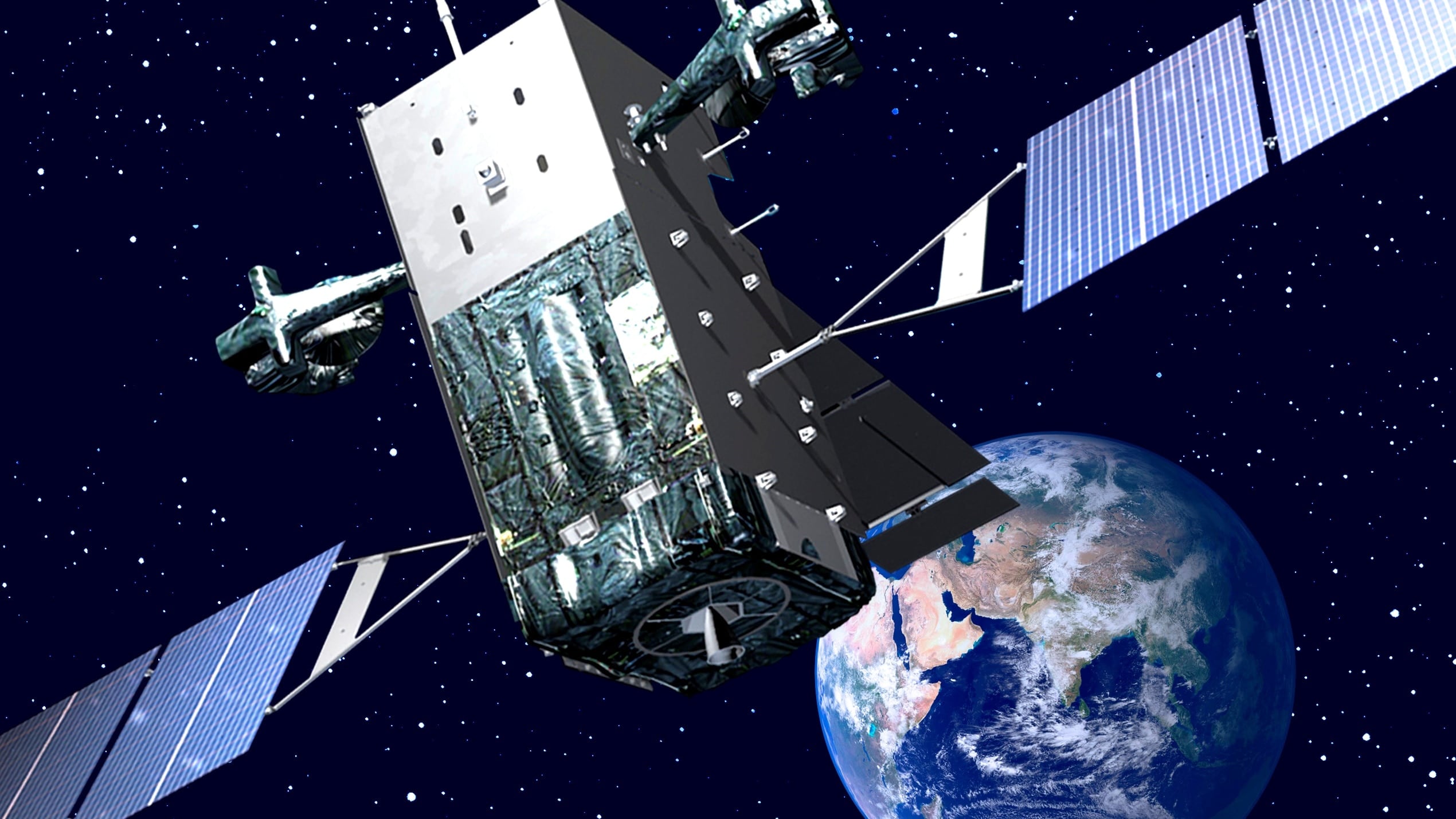The space domain is increasingly important, and it is becoming more contested and congested. So is it time to stand up an autonomous, dedicated force for space?
This is a question some in the Air Force, the primary government steward for space responsibility, have begun to ask.
Some of the arguments for a dedicated space force, according to Maj. Brent Ziarnick, an instructor at the Air Command and Staff College, include the notion that space is a different medium than land or sea military operations, engendering the need for a new organization, or the fact that the Air Force is too focused on its core mission — air power — to divert enough attention to space.
Ziarnick, speaking at the Satellite 2017 conference March 6 in Washington, D.C., explained that there are three paths for a potential reorganization and reorientation to space: a separate force, a separate corps or a separate guard.
Ziarnick offered a distinction between a new force versus a guard and corps model. He noted that a new military force would have a war-fighting mission focused on defeating aggression of a peer or near-peer adversary while typically guards and corps do not.
If discussing something like a space guard, which came up in an Air Force debate about 17 years ago in the Air Force professional journal, he said, that's a fundamentally different culture. Instead of a military war-fighting culture, it's a military culture but one that is still not necessarily war-focused, he added.
Using the Coast Guard as an example, he said this, as applied to a space guard or space corps, would be an organization that is devoted to safety, security and stewardship of the space since the Coast Guard is a military organization but not necessarily with a war-fighting mission.
Paraphrasing the first commandant of the Coast Guard, Ziarnick pointed to how the Navy’s mission is to prepare for war, so any benefit it has in peacetime is an ancillary byproduct, while on the other hand the Coast Guard’s mission is primarily peaceful; therefore, anything it can give the country during wartime is a byproduct.
Sounding a somewhat similar tune, Michael Smith, professor of strategic space studies with the Air Force, indicated that the core mission of the Air Force — air power — combined with other factors, contributes to a neglect of the space environment.
He clarified that this neglect is not a matter of misappropriations or mismanagement; it's simply a matter of some crisis or some contingency or cost overruns and programs that are under the core competency of the Air Force, which when they reprioritize, space programs fall off the table.
Smith explained that sending a space professional to an air power college is not getting to where the force needs to be in the way of education. These students don’t even conceptualize space correctly as a result, he said.
When they attend the Air War College, students train for war and study for war, despite the fact that space is primarily a peaceful mission, he continued. Smith equated space to Burger King at rush hour: 24/7/365 operations providing globally integrated capabilities to government, military and civilian groups.
He said he would ask Congress to establish a unified command plan that authorizes command and control for a space corps under the secretary of the Air Force that is autonomous, designating the four-star general that commands Air Force Space Command as the commandant of the space corps.
Under Smith’s vision, this individual would be replaced by a three-star general, and the four-star would move to the Pentagon with a newly established space staff.
This model, he said, would be the same as the Marine Corps is to the Navy. Furthermore, the commandant of space corps would sit on the Joint Chiefs of Staff and would work in concert with another commander of a command called U.S. Space Command. This would be a geographic functional command with Title 10 authorities for space activity.
Smith also offered three recommendations for the president going forward as well:
1) Declassification: It is ridiculous that we can’t talk about space weaponization, he said.
2) Stop publishing things like national space policy and the national security space strategy; they don’t help. It’s the final word and after that debate ceases until the president leaves office.
3) Re-interpret, amend or replace the outer space treaty. For all the benevolence written into it, it is an impediment to free market industry and getting financing and insurance in activities the U.S. wants to do, he said. The policy should be that every nationality should enjoy the free access of space. This has been re-interpreted under this treaty as no one can use space until everyone can use it together, which is not a desirable policy, he added.
In crafting a debate around a new focus towards space, Ziarnick posed a few important questions that need to be asked going forward. What is the most important thing to be accomplished in space — a war-fighting focus, a peaceful focus, a developmental focus? As such, is a reorganization beneficial to the country as a whole, he asked.
Mark Pomerleau is a reporter for C4ISRNET, covering information warfare and cyberspace.








